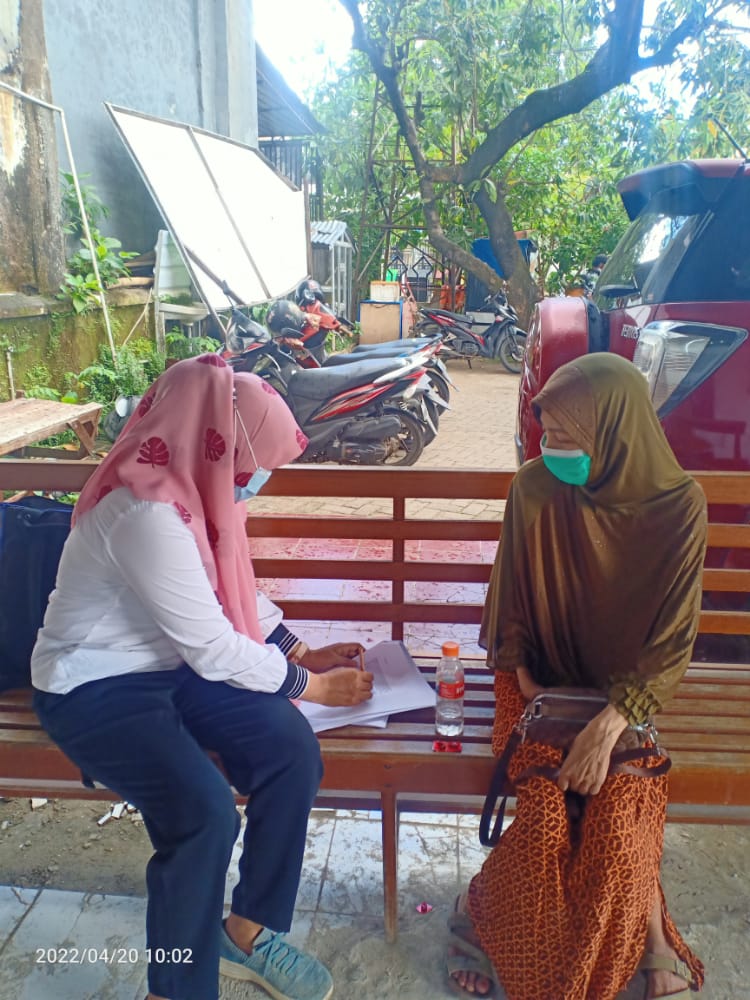Indonesia, a lower middle-income country in South East Asia, contributes approximately one in 11 of the world’s TB cases, with nearly one million people falling ill and over 150,000 dying due to TB each year.

“TB-CAPS” is a mixed methods study to implement a peer-led, community-based psychosocial support package for people affected by tuberculosis stigma, in Indonesia. The study, which is funded through a Medical Research Council Public Health Intervention Development (PHIND) award, is co-led by LSTM’s Tom Wingfield and Universitas Indonesia’s Ahmad Fuady.
The UN and WHO recognise TB-related stigma as a social determinant of health and a barrier to early TB diagnosis and treatment. Despite this, there is limited practical guidance on measurement or mitigation of stigma, which makes developing evidence-based tools and interventions that are socio-culturally appropriate and tailored to diverse needs of local communities difficult.
TB-CAPS follows on from the findings of the CAPITA Study, which was funded by a Royal Society of Tropical Medicine and Hygiene Early Career Researcher grant to Dr Fuady in collaboration with Dr Wingfield. During CAPITA, the team completed a scoping review and developed a novel conceptual framework on the pathways to impact of stigma-reduction interventions.
The team then went on to develop and validate a locally-appropriate tool to measure TB-related stigma in Indonesia, including in workplaces. The tool measures two key forms of TB-stigma: self-stigma, which includes feelings of guilt, shame, and reduced self-worth experienced by people with tuberculosis; and anticipated stigma, which includes perceived prejudice or discrimination from the community, related to having TB. Both forms of TB-Stigma can prevent people from seeking care, getting a prompt diagnosis, and becoming cured of TB.
Using the socio-culturally adapted stigma measurement tool developed in the CAPITA study, the team found that many people with TB experienced self-stigma in Indonesia and that higher levels correlated with depression and decreased quality of life. Importantly, the team also identified that people with TB described an unmet need for psychosocial support from peers - other people affected by or who have survived TB – through group counselling or mutual support to help them to overcome TB-related stigma and get through treatment.
TB-CAPS builds on these findings to work with TB Civil Society Organisations in Indonesia, such as the national TB survivor group TB-POP (right), and the Indonesian National TB Programme, to co-develop a peer-led community-based intervention to defray the psychosocial impact of TB.
The TB-CAPS team will support the training, development, and implementation of evidence-based peer support groups, sometimes called TB Clubs, which have been shown to be acceptable and impactful in other settings including Peru and Nepal. The groups are led by TB survivors and further strengthen local, regional, and national networks of people affected by TB. Such grass-roots networks are important because they empower people affected by TB, reduce isolation and stigma, create a connected and supportive community, and can complement existing related health system activities and services.
From the moment a person with TB start to feel ill, stigma can have a lasting and far-reaching impact on their life. As Ahmad explains: “from the point when somebody begins to lose weight or develops a cough, they worry they may be judged or have to give up their job. People don't want to seek care because they're worried others will find out about their diagnosis. There are also gendered aspects to TB-stigma. Examples we have seen are men feeling they need to carry on working to save face and provide for their household; and women being thrown out of their house or divorced due to their diagnosis, in some cases, with nowhere to go and no form of income.”
Tom agrees. He says the many myths around TB can perpetuate or worsen TB-related stigma and that accurate, reassuring public health messaging is needed: “People with TB in their lungs can quickly become non-infectious if they start appropriate TB treatment promptly. Misinformation and misconceptions about TB that hinder support from friends, family, and communities for those affected can be overcome by the interventions to reduce TB-stigma that we are developing, alongside improved person-centred TB education and care. We hope that this will lead to earlier detection and treatment, which are key to preventing the spread of TB and far more likely to happen if we can reduce TB-stigma in the first place.”
Ahmad and Tom are grateful to UK Research and Innovation for the MRC PHIND grant (MR/Y503216/1). The TB-CAPS study will kick-off in July 2023.
For more information, please contact:
tom.wingfield@lstmed.ac.uk, @drtomwingfield
ahmad.fuady01@ui.ac.id, @AhmadFuady01